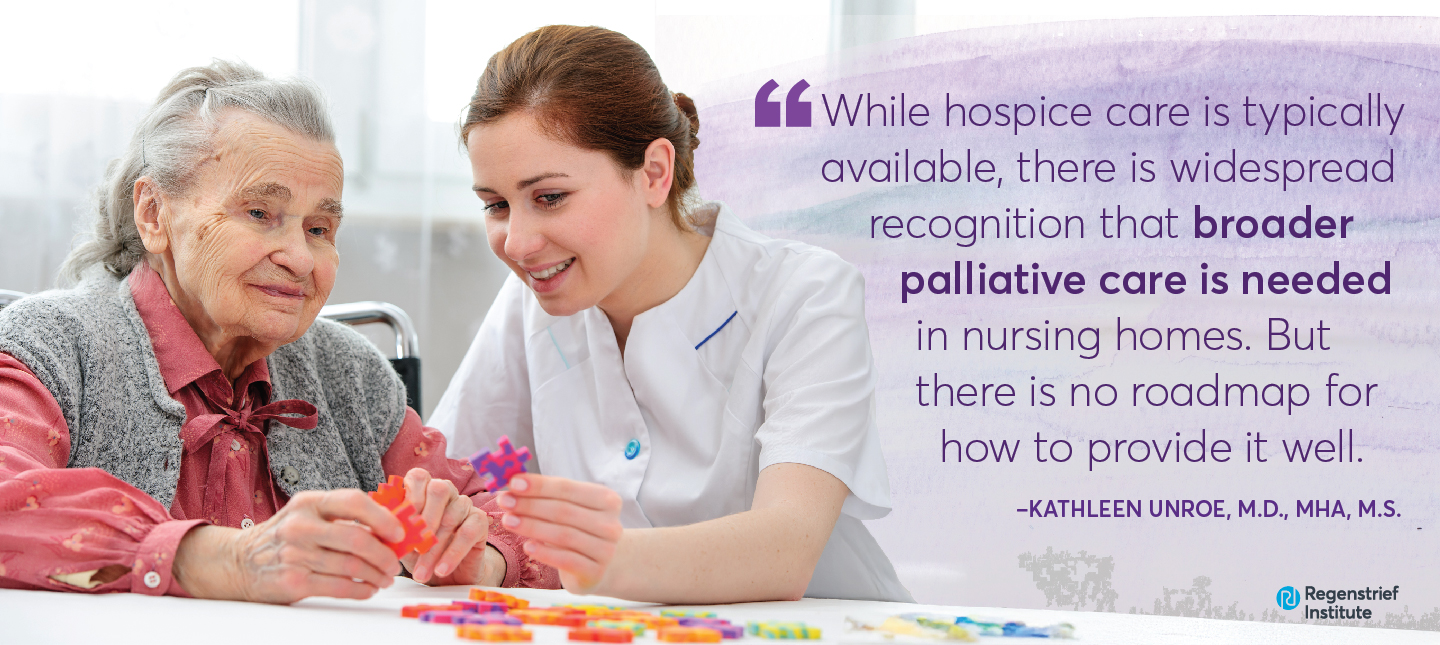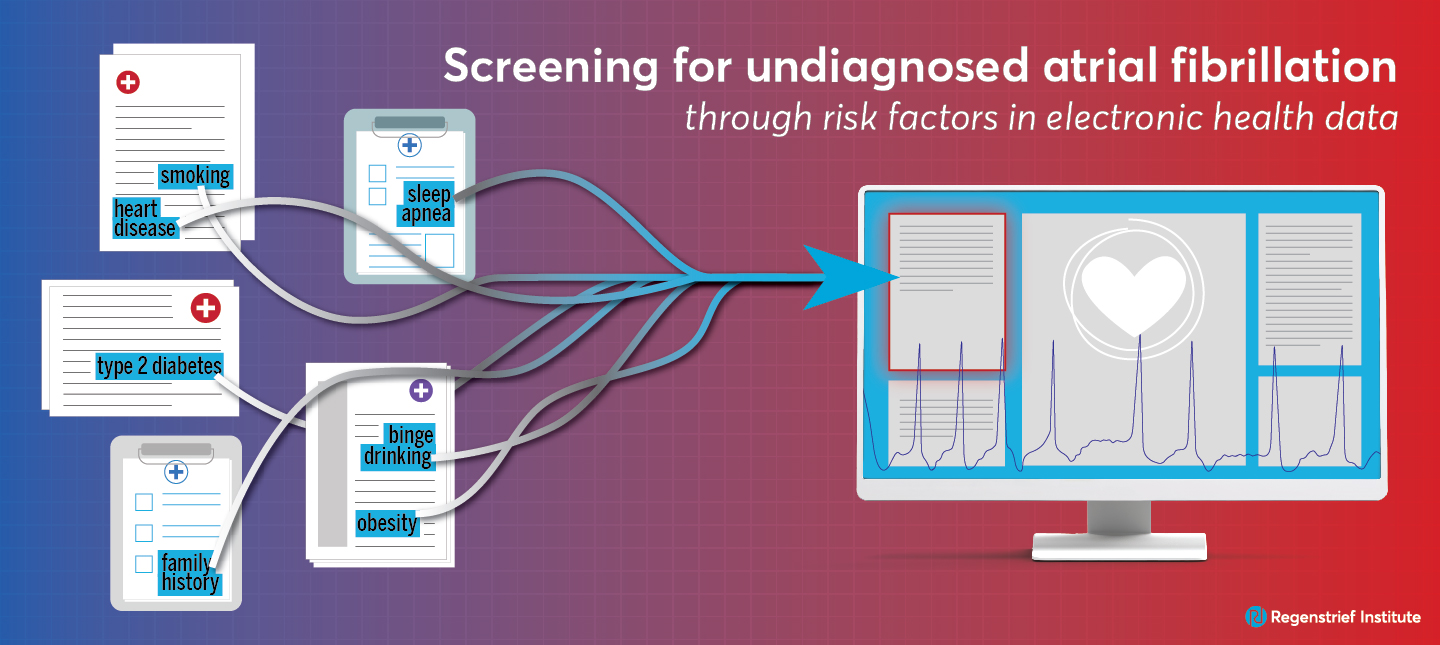INDIANAPOLIS – A team led by research scientists from the Indiana University School of Medicine and Regenstrief Institute has received funding expected to total $15.5 million from the National Institutes of Health’s National Institute on Aging to establish a national network structure to include more nursing home residents in clinical trials.
Even though clinical trials are critical to the development and testing of medical therapies and treatments including drugs and care models, individuals living in nursing homes are rarely included in clinical research studies.
The new five-year award will fund the development of NEXT STEPs (Nursing Home EXplanatory Clinical Trials: Supporting Transformation by Enhancing Partnerships), an innovative national nursing home clinical trials network. Researcher-clinicians from the IU School of Medicine and Regenstrief will lead the multi-institution initiative to remove barriers to nursing home resident participation in clinical trials, establishing a more inclusive approach to advancing medical science and improving human health.
Kathleen T. Unroe, M.D., MHA, M.S., of IU School of Medicine and Regenstrief, is the principal investigator of NEXT STEPs which includes research sites in nine states.
“Growing the infrastructure and capacity of researchers to conduct high-quality clinical trials to test diagnostic and therapeutic advances and care delivery in nursing homes are urgently needed,” said Dr. Unroe. “Our network will partner with industry leaders and nursing home resident advocates to identify key priorities and strategies to advance nursing home research.”
The NEXT STEPs network will enable researchers from different disciplines to increase the number and quality of clinical trials conducted in nursing homes, including those focusing on prevention, medical therapeutics, and behavioral and health services interventions.
NEXT STEPs will also create strong linkages among researchers, industry and other critical collaborators, fostering evidence-based innovations on key priorities to optimize resident care and quality of life for those living and supporting relatives and friends as well as those working in nursing homes.
Approximately 1.4 million people receive care in nursing homes in the U.S, a majority of whom have cognitive impairment or Alzheimer’s diagnoses. Prior research by Dr. Unroe and colleagues has successfully addressed barriers to inclusion of this vulnerable population in studies, including developing partnerships and identifying priorities; tailoring recruitment and engagement strategies to ensure diverse representation from residents, families and staff; designing interventions attentive to usual nursing home workflows as well as pathways for dissemination into real-world clinical practice.
NEXT STEPs will create an organizational structure, processes and procedures to develop a sustainable, diverse network of nursing home partners and researchers conducting successful explanatory trials to support high quality care for people with multiple chronic conditions and serious illness. This infrastructure will be built via three cores supporting three aims. The cores are:
- recruitment and retention
- methods, measures and data
- training and projects
Aim 1: Provide integrated support for investigators to conduct equitable, explanatory trials in nursing homes.
Aim 2: Develop a sustainable, collaborative community of engaged nursing home researchers and partners.
Aim 3: Build research capacity for high-quality, high-impact clinical trials in nursing homes.
The Nursing Home Explanatory Trials Network: Supporting transformation by enhancing partnerships grant (U24AG087939) was awarded to Indiana University through the Alzheimer’s Disease Initiative and includes funding for consortium activity with:
- Regenstrief Institute, Inc.
- Brown University
- University of Maryland, Baltimore
- University of Utah
- Hebrew Rehabilitation Center
- The Regents of University of California, Los Angeles (UCLA)
- University of Colorado Denver in the amount
- Institute for Healthcare Improvement
- Rhode Island Hospital
- University of North Carolina at Chapel Hill
- Duke University
- New York University
In addition to Dr. Unroe, researchers include co-investigators Wanzhu Tu, PhD, Regenstrief Institute and IU; Jennifer Carnahan, M.D., MPH, M.A., Regenstrief Institute and IU School of Medicine; Nicole Fowler, PhD, MHSA, Regenstrief Institute and IU School of Medicine. Susan Hickman, PhD, Regenstrief Institute, IU School of Medicine and IU School of Nursing leads the methods, measures and data core. Shaun Grannis, M.D., M.S., Regenstrief Institute and IU School of Medicine serves in an advisory capacity.
Kathleen Unroe, M.D., MHA, M.S.
In addition to her role as a research scientist with the Indiana University Center for Aging Research at Regenstrief Institute, Kathleen Unroe, M.D., MHA, is a professor of medicine at Indiana University School of Medicine and a practicing geriatrician in a nursing home in Indianapolis.












